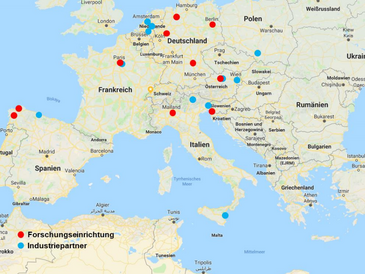This project is an Innovative Training Network of the Marie Skłodowska-Curie Action, coordinated by the TU Berlin and involving research institutions and industrial partners from Germany, Austria, Italy, France, Spain, the Netherlands, Poland and Israel (https://www.romsoc.eu/). Mathematical models are being investigated that play an important role in the increasingly virtual development of industrial products and processes. The challenge is to develop a model hierarchy on different scales, in which the different physical and also economic phenomena of the systems under consideration are suitably represented by model coupling. The technomathematics group of Prof. Dr. Dr. h.c. Peter Maaß of the University of Bremen collaborates in its subproject "Data Driven Model Adaptations of Coil Sensitivities in MR Systems" with the Israeli company SagivTech Ltd. and develops data-driven methods based on neural networks and deep learning. These methods have concrete applications in medical magnetic particle imaging, a technology for determining the distribution of magnetic material (e.g., in blood) for visualizing a wide variety of biological processes. Beyond their scientific work, the project trains the eleven young researchers for the challenges of multidisciplinary, international collaboration; they attend courses and workshops that cover scientific content and ethical aspects as well as soft skills. The PhD students are supervised by expert tandems, each consisting of an academic and an industrial partner, and spend at least half of their time in a company.



